Dishonored
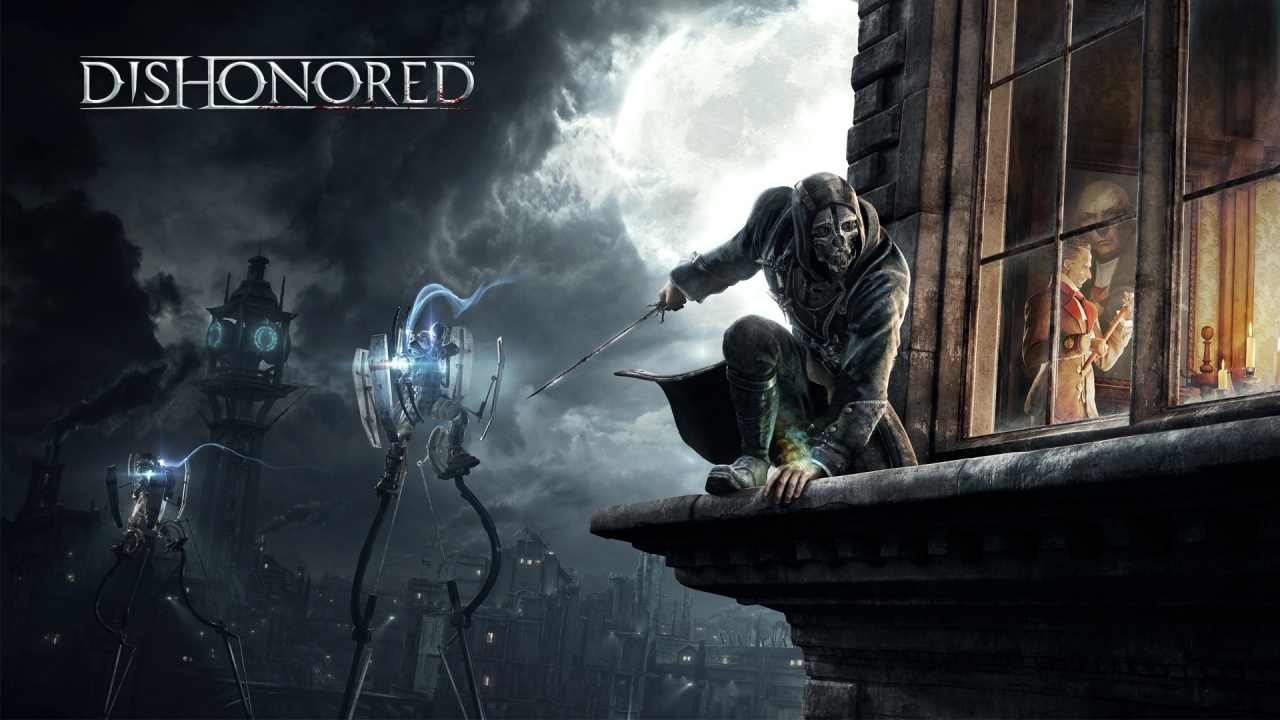
I had been looking forward to playing Bethesda's Dishonored the moment I saw the cinematic trailer for it online. On the trailer, I had seen a grungy steampunk city, a twisty dark plot, and the hint of a Bioshock meets Assassin's Creed aesthetic (for those unfamiliar with either franchise, you just need to know that they're made of awesome). Needless to say I immediately wanted the game.
The story of Dishonored centers on the actions of Corvo Attano, the Lord Protector. As Lord Protector, Corvo acts as a bodyguard to Gristol's empress, Jessamine Kaldwin. However, upon arrival at plague-infested Dunwall, Gristol's industrial whaling capital, the empress is murdered and her daughter, Emily, is kidnapped by assassins. In the aftermath, Corvo is framed in the crime. Stripped of his title and thrown into prison, Corvo escapes with the help of Loyalists seeking to reclaim the throne for Lady Emily Kaldwin. Allied with the Loyalists, Corvo must rid the city of those that plotted against the empress, and save the life of the most important figure in Gristol. Now that we've got a bit of a plot backdrop, time to break the review down in portions!
Story and Character Depth
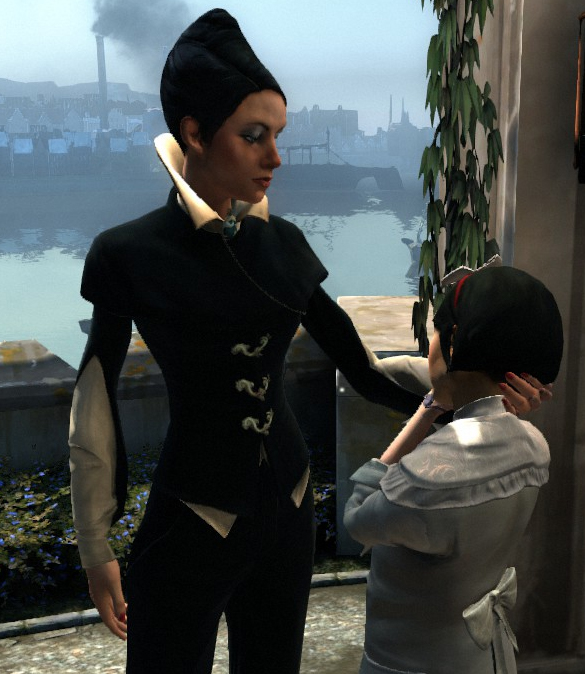 The recipe of the story appears straightforward enough. You have one massacred Empress, one Spymaster who becomes Lord Regent in the Empress' place, and a den full of Loyalists aiming to take the throne back with the help of their trump card: the ex-Lord Protector. Throw in the secondary ingredients such as the rat plague, the Outsider's magic, and the faction of thieves, assassins, and mad scientists out to do harm or good to the already-afflicted Dunwall. Oh, and maybe a dash of social intrigue, religious zeal, a great deal of betrayal, and a whole lot of murder. Trust me, this makes for one heck of a dish, and it doesn't even include the side course.
The recipe of the story appears straightforward enough. You have one massacred Empress, one Spymaster who becomes Lord Regent in the Empress' place, and a den full of Loyalists aiming to take the throne back with the help of their trump card: the ex-Lord Protector. Throw in the secondary ingredients such as the rat plague, the Outsider's magic, and the faction of thieves, assassins, and mad scientists out to do harm or good to the already-afflicted Dunwall. Oh, and maybe a dash of social intrigue, religious zeal, a great deal of betrayal, and a whole lot of murder. Trust me, this makes for one heck of a dish, and it doesn't even include the side course.
And then there are the people of the city. Every named character has a reason for playing his or her part. Every one of them has a background and belief that can intrigue, humor, or disgust (Granny Rags can probably do all three). And, certainly, each character reacts differently to the idea of power. How far does each character go to be able to wield control over the city? It's a question only the player can mostly answer, because Corvo's decisions do affect how characters react. The fact that the game has three different endings is testament to that.
Gameplay
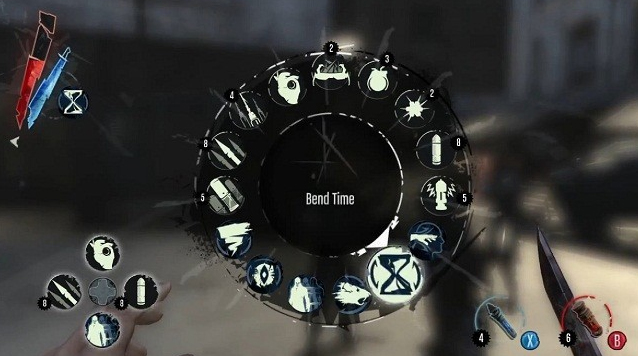
The player moves through the world in a first-person point of view, as Corvo Attano himself. For anyone who has played Arkane Studios' Bioshock 2, you should be familiar with the control system, as Dishonored emulates the same idea. Corvo carries a main weapon on his right hand--his trusty dagger--and a secondary weapon (or magical ability) on the left. Through the player's manipulation, Corvo can "blink"--or dash--to a person and slow time, then proceed to render the person unconscious (or worse, but I won't get too gruesome). There are many combinations and many different ways of performing the tasks, so mixing up methods makes the game interesting even on a second or third play-through.
The tasks are largely stealth infiltration and assassination quests (for a game hinged on vengeance, this should not be surprising). As a bodyguard-turned-assassin, Corvo has to sneak through guards and incapacitate political threats. Like I said before, there are various different ways these infiltrations and assassinations can be accomplished. Whether you want to crawl and take your chances with the rats, or jump from rooftop to rooftop, or burst in through the front door magic blazing, it's really your choice. Watch out, though, your actions tend to influence the ending of the game itself.
Unlike open worlds like Skyrim and Fallout, however, there is a limit to where Corvo can go and what he can do. For instance, if you happen to wreak havoc on your allies, the game practically yells at you to stop, and you are face to face with a game over screen. But that's okay, I'm sure you've saved often enough before attempting your ill-advised mutiny.
Worldbuilding and Setting
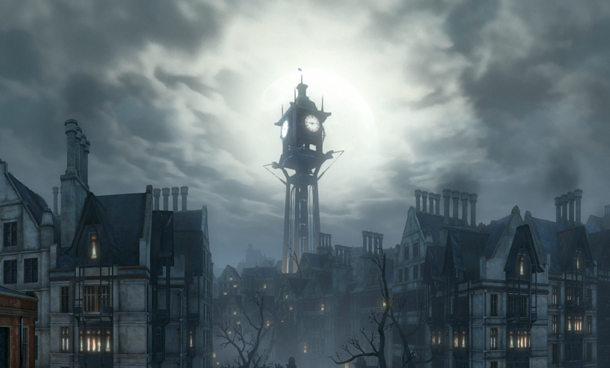
The world was beautifully carved and marvelously detailed. I'm the type of person who meanders through missions. Instead of rushing through, I attempt to experience the fullness of the game itself, soaking in the sights, reading book excerpts, and listening to audiographs stashed away in hidden corners. By doing so, I get the feel for the world of Dishonored. And trust me, the story and detail does not stop at Dunwall alone.
Off the Isles is the continent of Pandyssia, a world rumored to have flying serpents and bull rats that can consume humans within seconds. There is an Academy of Natural Philosophy, the scientific authority of the Dishonored world, where the great thinkers Anton Sokolov and Piero Joplin attended. Through the books and audiographs, I have also discovered play excerpts, histories, strictures, and numerous sea shanties, all of which were written specifically for the game. With such detail, and at such a large scale, it's a great shame that the gameplay is limited to Dunwall.
Art and Design
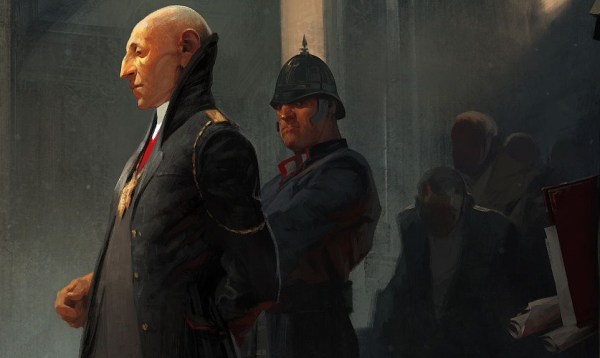
This will be brief, because, honestly, I can't help falling in love with the aesthetics of Dishonored. Like the Bioshock franchise, Dishonored hinged on that idea of man meets machine. It's the Industrial Era at its finest--and its grittiest. It's steampunk with--as the creators have said--Lovecraftian flare. I loved seeing Sokolov and Joplin's inventions--from the Wall of Light, to the Tallboys, to the Elixirs and Spiritual Remedies. I loved having the city itself set the tone of the missions: dark, plague-infested alleys and sewers, gilded high society balls, majestically designed towers, and--from time to time--the alternate dimension of the Void.
So yes, thumbs up for the characters, the world, the story, the steam, and the punk. If I had a checklist for what I think makes a fantastic game, I'm pretty sure Dishonored hit most of them--if not all. Admittedly, I was somewhat underwhelmed by what I saw at The Golden Cat and the attempted snatches of romance here and there. And I would have loved it much more had the story and the world been expanded.
And yes. After having finished the game within a week or two, I'm already on my second play-through.
Other information:
Game: Dishonored
Released: October 2012
Genre: Action Adventure, Stealth
Developer: Arkane Studios (Bioshock 2)
Publisher: Bethesda Softworks (The Elder Scrolls and Fallout franchise)
ESRB Rating: M for Mature (for dark themes and violence, so not good for the kiddies!)






